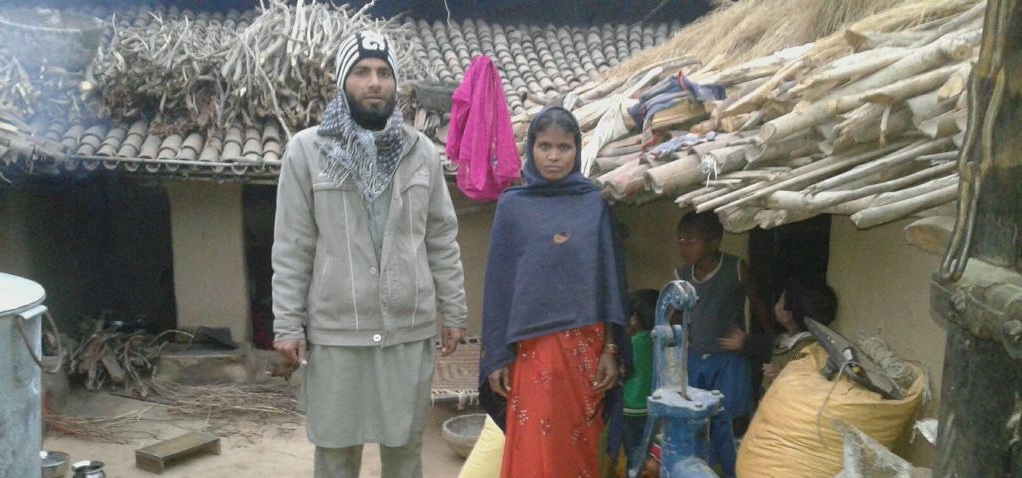Diaspora Philanthropy For Resolving Drinking Water Woes In India

NEW DELHI: As is well-known, a diaspora’s engagement with the homeland happens in various ways and means. Diasporas have emerged as non-state actors in assisting the economic and social developments in their host and homelands in recent years. Here is the story of the Indian Americans who are drawn from the Indian Muslim diaspora of the United States. They have been carrying out various welfare programmes for the needy of India irrespective of religions through their organization - the Indian Muslim Relief & Charity (IMRC) based in California since its inception 1981. In order to ameliorate the condition of the poor, IMRC has tied up with the various local organizations throughout the country to implement its welfare programmes. Being aware of the fact that some parts of India are now reeling under drought and subsequent drinking water crisis. IMRC has stepped in so as to mitigate the drinking water crisis in the various parts of the country through its initiative called ‘water well or tube well project’. According to Raqib Hameed, a volunteer and media coordinator for IMRC in India, “It has dug and installed more than 400 bore wells and hand pumps across six Indian states since 2013”.
On account of continued droughts over the last three years in the Marathwada region-- comprising eight districts ----of Maharashtra state., there is an acute drinking water crisis in the region now. IMRC has put in 50 hand pumps in the month of January 2016 in the three districts of Nanded, Hingoli and Prabhani and various other water projects are already underway in the places like Bhogaw, Girgaw, Khurgaw, Chingaw, Kamtha, Taroda, Daitna, Parbhani, Babulgaw, Balapuri in the same state.
Besides, IMRC in partnership with the local organizations has put in bore wells and hand pumps in the different villages like Chatrukhedi, Mau, Barukhedi, Burakhedi, Magrana, Dhanora, Manglaj, Banskheda, Sherpura, Khujner of Madhya Pradesh state. Followed by, the places like Pileru, Kalkiri, Rajuvaripalli, Kalluru, Gadi, Ellankivaripalli, Sodum, Madalcoloni , Muhammadiyulapalli and Kuppam have been covered in the state of Andhra Pradesh. In the State of Telegana, Syednagar, Qasimnagar, Venkatadripet, Uppugal, Thatikonda, Khanpur, Kandalgudem, Torrur and Ontimamidipalli are covered.
In order to provide clean drinking water, the IMRC has also completed installing 35 out of 50 tube wells across different villages and mohallas in the flood- hit Sumbal Sonawari belt of Kashmir.
During the summer, all the surface water sources have dried up due to soaring temperatures in the various districts of Bihar and Jharkhand. Mohammed Raket Miyan, 40 from Gordhia village in Gaya district says, “as summer approaches, he has no choice but to migrate from his village to another for water as his village wells dry up “. The villages bordering Bihar and Jharkhand in Gaya and Chatra districts are always under water distress as there is no reliable water sources nearby. According to Nazirun Bibi, 35 from Sherghati(Imnabad) of Gaya district of Bihar, “she walks 2.5 KM to collect water for the family of five due to no water sources nearby her house, which is located between the two mountains”. IMRC has installed ring bore wells in the villages of Mohammed Raket Miyan and Naziirun Bibi recently. Their water woes have come to an end now. Apart from their villages, IMRC has covered the places like Harnabuzrug, Chakdarab, Fatimachak, Raypura, Parsotipur, rajiparsotipur, Babura, Aabdachak, Nanduchak, Dhayharna in the state of Bihar and the various villages in Chatra and Palamu districts of Jharkhand state.
In the wake of natural calamities and man-made calamities, IMRC has been at the forefront providing relief materials to the affected people in the 2015 Chennai floods, 2014 Kashmir floods, 2013 Muzaffarnagar riots and 2012 Assam riots. The story of IMRC reveals, ‘charity not only begins at home’ but also from abroad’.



